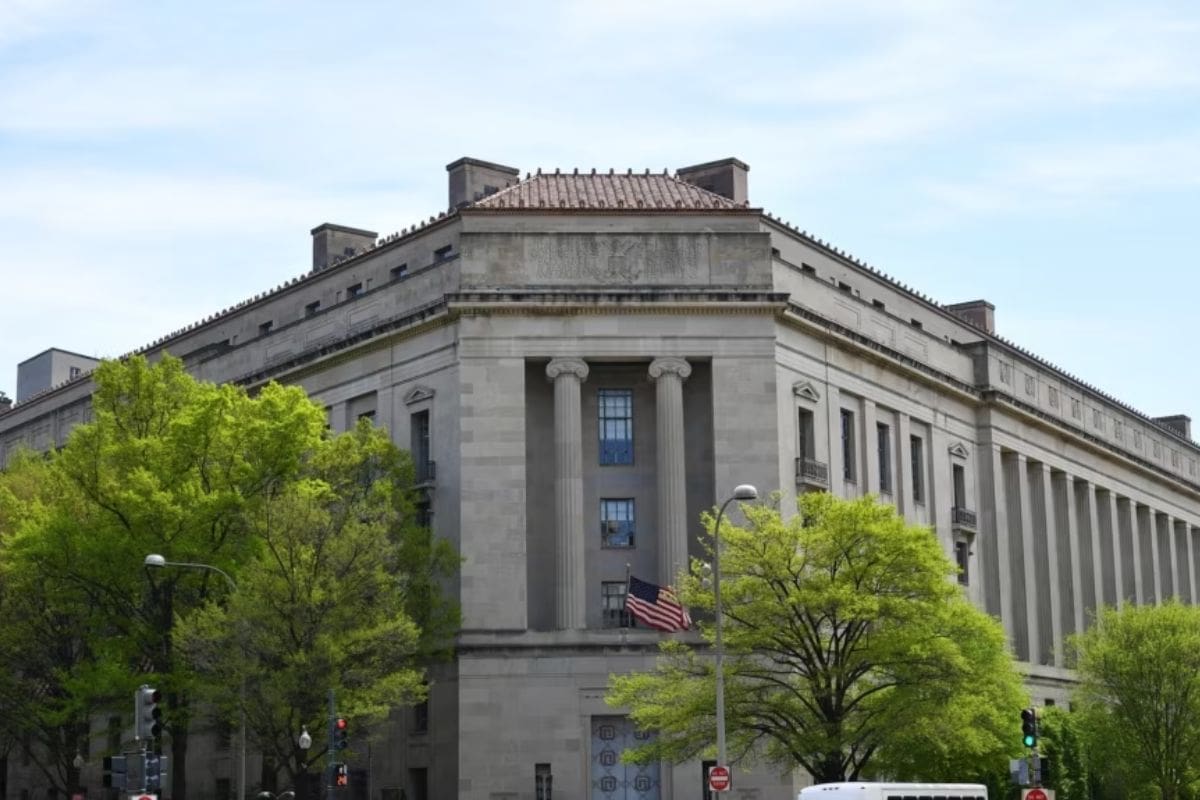California Arrests Chinese Born Man: California authorities have arrested a Chinese-born man on charges of stealing trade secrets. The individual, identified as Gong, a U.S. researcher, is accused of transferring confidential information to unauthorized entities, raising concerns over potential espionage activities.
The arrest sheds light on the details of Gong’s work and the duration of his employment at an unidentified company. Interestingly, this case also draws parallels with another ongoing investigation involving Iranian nationals and export violations.
The implications of these arrests and the impact on international trade and intellectual property rights are sure to captivate the attention of industry experts and legal authorities alike.
Key Takeaways
- Chenguang Gong, a Chinese-born U.S. researcher, has been arrested in San Jose, California for stealing trade secrets.
- He is accused of transferring over 3,600 files, including blueprints for infrared sensors used in space-based systems for detecting nuclear missile launches and tracking missiles.
- Gong is also accused of attempting to provide information to China for military purposes, highlighting the pursuit of advanced technology by foreign actors.
- This case, along with another involving Iranian nationals and export violations, underscores the need for robust counterintelligence measures, protection of sensitive information, and strict export controls to safeguard national security interests.
Arrest of Chinese-Born U.S. Researcher for Trade Secret Theft
A Chinese-born U.S. researcher and naturalized citizen, Chenguang Gong, has been arrested in San Jose, California, on charges of stealing trade secrets, raising concerns about the compromise of sensitive national security information. The arrest, announced by the Justice Department, highlights the potential threat posed by individuals with access to sensitive technologies.
Gong is accused of stealing trade secrets related to technology crucial for detecting nuclear missile launches, a matter of significant national security importance. The alleged theft of these trade secrets has raised concerns about the potential implications for national defense and the protection of critical infrastructure. Given the sensitive nature of the information involved, this case underscores the need for robust safeguards to prevent the unauthorized disclosure of trade secrets and to protect national security interests.
Allegations of Trade Secret Transfer
The allegations of trade secret transfer involve Chenguang Gong, a Chinese-born U.S. researcher and naturalized citizen, who is accused of transferring over 3,600 files from the research and development company where he briefly worked. The stolen files encompassed blueprints for infrared sensors utilized in space-based systems for detecting nuclear missile launches and tracking ballistic and hypersonic missiles. To provide a visual aid, the following table highlights the key details of the allegations:
| Accused Researcher | Files Transferred | Nature of Stolen Files |
|---|---|---|
| Chenguang Gong | 3,600+ | Infrared Sensor Blueprints |
These allegations raise concerns about the potential compromise of critical national security technologies. It remains to be seen how the legal proceedings will unfold and what further evidence will be presented to support the accusations against Gong.

Also Read: Recent Law Changes Implications of California
Involvement in Espionage Activities
Following the allegations of trade secret transfer, the involvement of Chenguang Gong in espionage activities has come to light, revealing a concerning threat to U.S. national security. The Justice Department has accused Gong of attempting to provide information to the People’s Republic of China for military purposes, in addition to stealing trade secrets.
These allegations highlight the active efforts of foreign actors, particularly China, in their pursuit of advanced technology and their willingness to exploit it for their own gain. Such activities pose a significant threat to U.S. national security, as they compromise American innovation and economic competitiveness.
The case of Gong serves as a reminder of the ongoing need for robust counterintelligence measures and the importance of protecting sensitive information from unauthorized access and exploitation.
Details of Gong’s Work and Duration at Unidentified Company
During his employment from January 2023 to April 2023, Chenguang Gong worked as a circuit design manager for infrared sensors at an undisclosed research and development company. The specific role of Gong as a circuit design manager for infrared sensors indicates his involvement in the development and design of technology related to this field. This suggests that Gong had access to sensitive information and proprietary knowledge during his tenure at the company. The alleged theft of trade secrets coinciding with Gong’s employment period raises concerns about the potential misuse of his position for espionage activities. It underscores the need for strict security measures and vigilance in protecting intellectual property within research and development companies.
| Duration | Position |
|---|---|
| January 2023 | to April 2023 |
| Circuit Design Manager | |
| (Infrared Sensors) |
Parallel Case Involving Iranian Nationals and Export Violations
The Justice Department has recently brought charges against two Iranian nationals, Abolfazi Bazzazi and Mohammad Resa Bazzazi, for their involvement in exporting aerospace industry equipment to Iran in violation of U.S. export laws.
The father-son duo is accused of conspiring between 2008 and 2019 to evade U.S. export laws by obtaining U.S. equipment and technology for the Iranian government.
The complex scheme highlights the ongoing challenges in preventing the illicit export of sensitive technology.
The charges emphasize the seriousness with which the U.S. government views violations of export laws and its commitment to safeguarding national security interests.
The case also serves as a reminder of the need for robust export control measures to prevent the proliferation of sensitive technology to unauthorized entities and countries.
Conclusion Of California Arrests Chinese Born Man
The arrest of a Chinese-born U.S. researcher for stealing trade secrets highlights the ongoing concerns of intellectual property theft and espionage activities.
The allegations involve the transfer of trade secrets and potential involvement in espionage.
The individual, Gong, was reportedly employed by an unidentified company for a certain duration.
This case parallels another involving Iranian nationals and export violations.
The incident underscores the need for continued efforts to protect intellectual property and prevent unauthorized transfers of sensitive information.
Our Reader’s Queries
What is an example of trade secret theft?
A former staff member of The Smoothie Shoppe secures employment with a rival company and discloses the confidential recipe for the Shoppe’s top-selling smoothie flavor to the new employer. Subsequently, the new employer starts promoting the flavor as their own creation.
Is theft of trade secrets a crime?
Engaging in the theft of trade secrets is subject to a statutory maximum penalty of 10 years in federal prison. The investigation into this matter is being conducted by the FBI’s Los Angeles Field Office, with significant support from the FBI’s San Francisco Field Office and collaboration with the U.S. Attorney’s Office for the Northern District of California.
What are the elements of theft of trade secrets?
To establish a violation under § 1832, the government must demonstrate: (1) the defendant unlawfully acquired, destroyed, or transmitted information without the owner’s authorization; (2) the defendant was aware that this information was proprietary; (3) the information constituted a genuine trade secret; (4) the defendant had the intention to economically benefit from the misappropriated trade secret.

